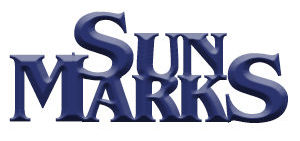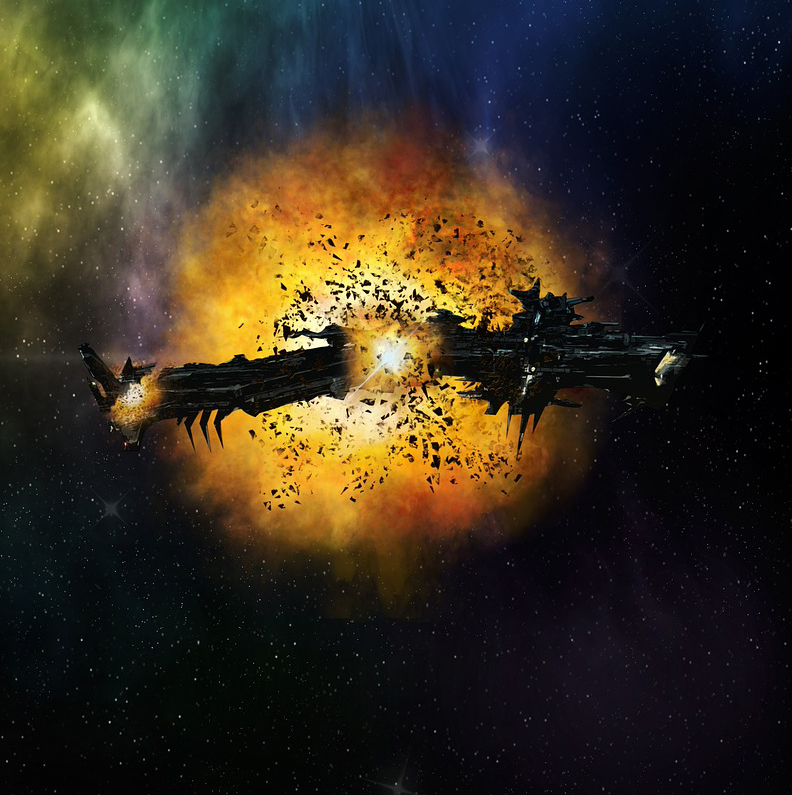The lurch almost threw me out of bed. I woke staring down out the porthole in the floor, watching the sun circle by. I sat up, pushing down the dizziness, and reached for my touchphone. I had hitched an almost free ride—I was doing some consulting, even though I’d been downsourced—on the Cassandra’s space trials. We were three days into it; and there should not have been anything that violent on the standard itinerary.
“Sorry about that, Hans,” Captain Matt said, before I’d even spoken.
He sounded as annoyed as I felt. “Frankie wanted to push through a few extra maneuvers. I said ‘no,’ but he over-rode me and went ahead anyway. And this is why I hate space trials,” he said. “On space trials, the Head Designer can pull rank.”
I rubbed my face. (Were there more wrinkles on it now?) “What exactly did he do?” I asked. A pause. I put on a shirt, and turned on the camera feed.
“Yes, that could happen. And we’d lose containment, and the entire polywell/plasma system would shut down. Which would be a sucky pain in the ass…”
Matt also rubbed his eyes. “A zig-zag anti-threat move he’d seen in a military manual.”
“Huh,” I said. “I guess I am out of the loop. No one at the company told me we were planning on taking a civilian cruise liner into combat.”
Matt leaned toward the camera, the Eagle on his collar coming in to focus. “Between you and me, I think he wants to pitch selling this propulsion system to the military.”
I shrugged. “Fine. But at four in the morning?”
“I know,” he said. “Look, I’ll tell him you were pissed—maybe that’ll get him to back off until later.”
You think he’ll give a shit what I think? I thought. Instead, I said, “No, look. I’m up already. I was going to get up in another hour anyway. I’ll get dressed and go and take a look at the containment systems. See if he’s broken anything.”
I floated myself into my workstation harness and began running the diagnostics. Frankie had duct-taped a hand-written checklist above my workstation touchscreen. As if I needed it.
First: Secondary magnetic containment on the polywell reactor. Then integrity of the cooling and pressurization system for the entire silane cuperate system. Then a quick check—just to see—of the entire magnetic containment system. Not really my area; but those containment fields—they’re what the superconducting pressurized silane cuperate is all about. And I’d feel a little silly and embarrassed if the plasma containment failed, and all I could say about it was, “But the cooling/pressuring system was working!”
I ran the checks, and then, just for kicks, I took a look at the list Frankie wrote up. He’d got it wrong. He’d put checking the magnetic plasma conduits second—right after the primary safety check—and before everything else. Understandable, emotionally—the plasma jets were his main interest. But he’d got the logic wrong—you can’t depend on the integrity of the magnetic fields without making sure you’ve got the right pressure and temperature for the silane compound to superconduct.
“Oh, good—you’re up.” Frankie floated by, his young bony limbs jutting out of shorts and a T-shirt. “Think the system is up for some joyriding today?”
Am I up for joyriding is the better question, I thought. “What—what do you mean—how much joyriding?” I said.
“Oh, right—forgot to send you the scheme.” He tapped at his watch.
The scheme popped up on my monitor. Three days of extra maneuvers, including high acceleration, short breaking, fast turns, off-axis coasting.
Three days.
I couldn’t afford three days—I had an appointment with Dean Cohen Yu from Tshingua University. Adding three days to the itinerary would make one day late for that appointment.
Maybe Frankie could see my jaw dropping. He said, “Don’t worry, professor—the ship’s fast enough—we’ll make up the day and get you to your conference with a few hours to spare.”
“A few hours?” I said. I had been planning on having a full day. But in any case, a few hours in space travel was cutting it much too close for comfort.
“You’ll make it in time,” he said. “And you’ll get the job, too. I’ve already posted a reference!”
Crap! I thought. Who invited him to post a reference? That was the problem with professional networking—my interviewers post on my profile that they’re talking to me, and everyone in my network can see it. I meant it as a way of making myself seem more competitive—see who’s seeing me—I hadn’t thought that this kid would take it upon himself to blow my chances with his probably poorly chosen words. What I said was, “I hadn’t realized the Cassandra was supposed to be a military ship.”
“It’s not,” he said. “But the P15 propulsion system—this could definitely be military grade.”
I took a deep breath, closed my eyes, took a few seconds before responding. “Yes, sort of. There’s enough thrust developed, in a light enough system. But the infrastructure we’ve got around it—the cooling system, the containment system—they’re not up to military specs.”
“Right. No one’s saying that the systems here,” he waved a hand around, almost sending himself into a spin before he grabbed a handrail, “would be up to the sustained stress of military duty. But a few days of stops and starts? Why not?” When I didn’t immediately respond, he added, “You don’t see a reason why not? I trust?”
“Honestly?” I said. “There might be some inertia issues—coolant sloshing. We could lose superconductivity.”
He tapped at his giant watch. Standard issue for Director-level people. I used to have one. Now, if I wanted one, I’d have to pay for it personally. But not on a consultant’s unreliably variable income. “Right,” he said. “Yes, that could happen. And we’d lose containment, and the entire polywell/plasma system would shut down. Which would be a sucky pain in the ass… Oh—we’d be stuck for a few hours for re-start—you’d lose more time; I see.” He paused. “I’ll make you a deal—let’s compress some of the maneuvers, cut some of the eval time in between—build in some SNAFU time in case we do need a re-start, and still get you to Mars on time?”
“Frank, look. I do appreciate the suggestion. But that’s not the only problem,” I said. “With coolant sloshing you could get highly localized temperature shifts.”
“Never happen,” Frankie said. “Not with this system—it’s too compact. The whole thing either stays up, or the whole thing goes down. And I grant, yeah, it’s possible we could get a shut-down. But that’s why we run tests, right?”
“We also run sims before tests,” I said.
“That’s a good point,” he said, nodding. “We’ll do this: We’ll go ahead with the maneuvers I’ve got—I’ll compress the schedule; you go run some sims on the first few. I’ll check in with Suzanne and with Captain Matt, and we’ll get started just before lunch. OK?”
The ship was still close enough in to an EntangleNet beacon that I could get a pretty good video link-up with Cohen Yu back in Tshingua. You could see the influences of the mixed ancestry in his face—almond eyes topped with wavy hair that really wanted to go curly, but couldn’t.
“Dr. Loemin,” he said. “I do want to say, I am looking forward to meeting you in person.”
“And I you, Dean Cohen,” I said.
“I have to tell you in advance, however. The search committee looked over your CV.”
I knew what would come next. With thirty years in industry; with all my interesting projects and research proprietary, my publishing record was thin. At best. Very few journal articles, and most of those were reviews. None of those articles placed in the top journals (because all of my interesting research was proprietary). And a book—a beginning graduate “supplemental” text that I managed to write without violating corporate intellectual property embargoes. And even that—Maude had had to pull strings to get the permission. (I’d suggested there might be royalties. There were. Not as much as she had hoped.)
I said, “Would it help if I pointed out that my book, Superconductor Management for Propulsion, got good reviews as a supplemental text in top journals?”
Cohen opened his mouth, then closed it. His eyes shifted—looking through my CV floating next to our chat window. “Yes, I see,” he said. “It might help. Somewhat. No decision has been made. We are, however, a research institution primarily. I would say to you candidly—if I might make a suggestion—credits like those might carry more significance at places weighted more towards teaching.”
Yes, they would, I thought. And I had some leads at those places as well—I would be meeting with key people from Tufts and Cornell and Heidelberg, too. But teaching universities tended to have less research money. I chose my next words carefully. “If I may be candid, as well, Dean Cohen. I am also looking in those sorts of places as well. But very few places in the Solar System can match Tshingua’s reputation. And almost none can match its reputation in Engineering or Materials Science. And while my publication record may seem thin, I can, when we meet, tell you — ”
He cut me off. “Your reputation among your peers does travel, which is why we’re able to consider you at all. The Search Committee, however, includes faculty from outside the Materials Science and Engineering departments, and they raised the questions about your CV.”
“Yes,” I said. “What I was saying was, when we meet on Mars, I can tell you about some of the research I’ve worked on, that I haven’t been allowed to publish.”
“I look forward to hearing it,” Cohen said. “See you in a few days.” He closed the connection.




